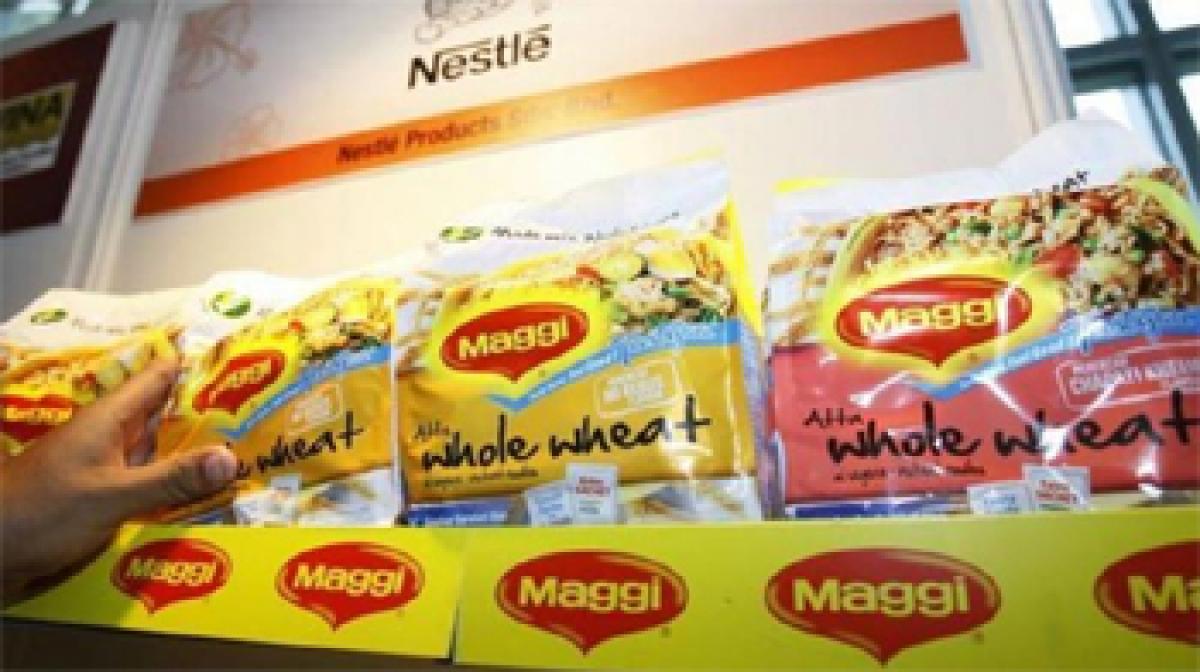Live
- GMR Airports Unveils AI-Powered Digital Twin Platform to Transform Airport Operations
- India poised to become leading maritime player: PM Modi
- Top Causes of Kidney Stones and How to Recognize Silent Symptoms
- India’s renewable energy capacity logs 14.2 pc growth at 213.7 GW
- Winter Session of Odisha Assembly adjourned sine die
- Biden calls Trump's tariff approach 'major mistake'
- After Drama Over Eknath Shinde’s Chief Minister Race, Maharashtra Cabinet Formation Faces New Tensions
- Egyptian FM, Blinken discuss recent developments in Syria
- Iran's supreme leader says Syria's developments result of US-Israeli 'plot'
- Elon Musk to Purchase $100 Million Luxury Mansion Next to Donald Trump's Mar-a-Lago, Report Reveals
Just In

Food regulator FSSAI has allowed state authorities to start proceedings against noodle or pasta makers if taste enhancer monosodium glutamate (MSG) is found in their products despite carrying \'No MSG\' or \'No added MSG\' label on the packets.
Food regulator FSSAI has allowed state authorities to start proceedings against noodle or pasta makers if taste enhancer monosodium glutamate (MSG) is found in their products despite carrying 'No MSG' or 'No added MSG' label on the packets.
The direction, which comes after the Maggi controversy last year, clarified that state food safety commissioners can launch specific enforcement/prosecution only after ascertaining that MSG was "deliberately added" during the course of manufacturing and the same was not declared on the label of the noodle/pasta packer as per the food safety regulations.
"To prevent, both, avoidable harassment/ prosecution of Food Business Operators (FBOs) as well as to ensure that consumers are facilitated to exercise informed choices in respect of what they eat, proceedings may be launched against FBOs only when the lables states "No MSG" or "No added MSG" and MSG is actually found in the foodstuff," Food Safety Standards Authority of India (FSSAI) said in an order. Glutamate is naturally found in some common foods such as milk, spices, wheat, vegetables, etc.
Presently there is no analytical method to determine whether MSG was added to the product during its manufacture or was naturally present in the product. This can however be checked through inspection of the manufacturing premises.
"Commissioners of Food Safety are advised that specific enforcement/prosecution may not be launched against the manufacturers of Noodles/Pasta on account of presence of MSG/Glutamic Acid unless it is ascertained by the department that Monosodium Glutamate flavour enhancer (INS E-621) was deliberately added during the course of manufacture without required declaration on the label as indicated in Para 1 above," the order added.
In June, Nestle had to withdraw its instant noodles brand Maggi from the market over allegations of high lead content and presence of MSG (monosodium glutamate).
The food safety regulator FSSAI had banned Maggi noodles after it found excess level of lead in samples, terming it as "unsafe and hazardous" for human consumption.
Meanwhile, the Swiss food group Nestle said on Friday it had not been informed by government authorities of any new health issues with its instant noodles after a newspaper reported tests had detected higher-than-permissible levels of ash in the product.
"We have not received any notice from the concerned authorities about samples of Maggi noodles collected from Umesh Chandra, Barabanki. We have also not received any notice from the court and we have heard about this only from a media report," a Nestle spokesman in India said.
The Wall Street Journal had cited food safety inspectors in the northern state of Uttar Pradesh as saying they had filed a lawsuit accusing Nestle of substandard practices after ash content in samples of its Maggi 2-Minute Noodles was found to exceed the legal limit.
The Indian unit of the Swiss food giant had been grappling with a public relations crisis that hit sales after local regulators reported last year that some packets of the Maggi noodles contained unsafe levels of lead. Sales resumed in November.
Nestle said on Friday its products were safe, adding it had come across instances in Uttar Pradesh in which standards for macaroni products were being applied for instant noodles with seasoning, which it called "erroneous and misleading"

© 2024 Hyderabad Media House Limited/The Hans India. All rights reserved. Powered by hocalwire.com







